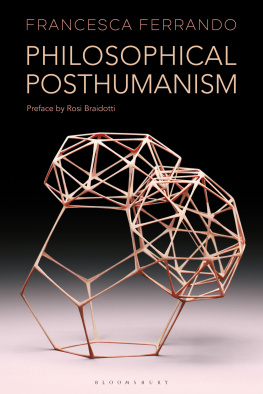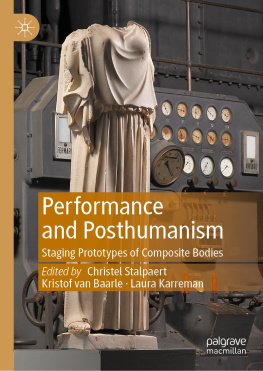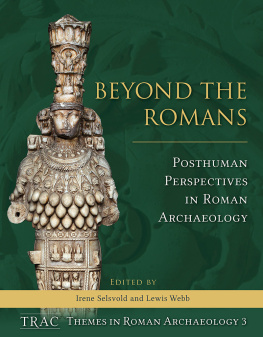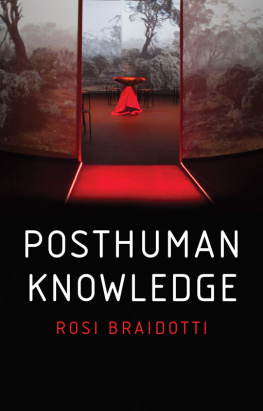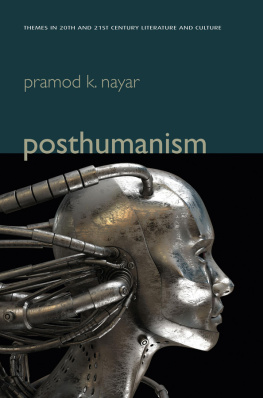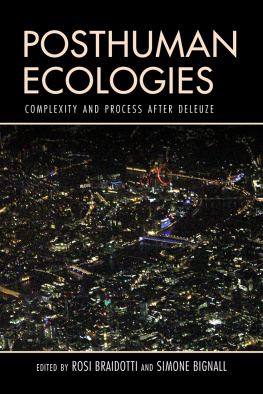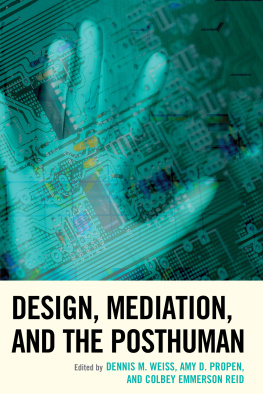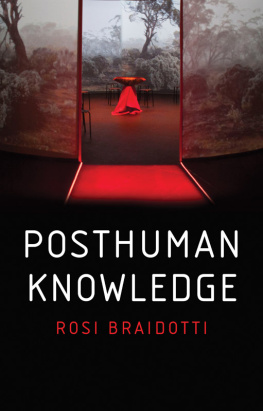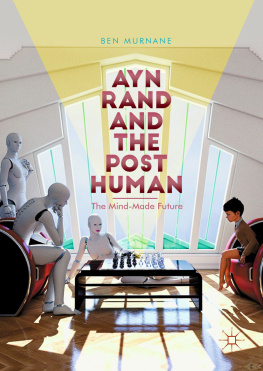Philosophical Posthumanism
Theory
Series editor: Rosi Braidotti
Theory is back! The vitality of critical thinking in the world today is palpable, as is a spirit of insurgency that sustains it. Theoretical practice has exploded with renewed energy in media, society, the arts and the corporate world. New generations of critical studies areas have grown alongside the classical radical epistemologies of the 1970s: gender, feminist, queer, race, postcolonial and subaltern studies, cultural studies, film, television and media studies.
This series aims to present cartographic accounts of emerging critical theories and to reflect the vitality and inspirational force of on-going theoretical debates.
Editorial board
Stacy Alaimo (University of Texas at Arlington, USA)
Simone Bignall (Flinders University, Australia)
Judith Butler (University of Berkeley, USA)
Christine Daigle (Brock University, Canada)
Rick Dolphijn (Utrecht University, The Netherlands)
Matthew Fuller (Goldsmiths, University of London, UK)
Engin Isin (Queen Mary University of London, UK, and University of London Institute in Paris, France)
Patricia MacCormack (Anglia Ruskin University, UK)
Achille Mbembe (University Witwatersrand, South Africa)
Henrietta Moore (University College London, UK)
Titles in the series so far
Posthuman Glossary, edited by Rosi Braidotti and Maria Hlavajova
Conflicting Humanities, edited by Rosi Braidotti and Paul Gilroy
General Ecology, edited by Erich Hrl with James Burton
To us, human and posthuman beings .
To existence.
Philosophical Posthumanism
Francesca Ferrando

Contents
Rosi Braidotti
Ferrandos brand of posthuman thought is as far removed from a sense of terminal crisis of the human, as posthumanism gets. What Ferrando enacts instead is a generous overflowing of ideas, affects, desires, and aspirations, which she operationalizes across a broad span of discourses within the humanities. They include strict disciplines, such as philosophy, and more interdisciplinary areas, such as media, gender, and postcolonial studies, but they are never limited to any one of them. Ferrando is both a classicist and a futurist thinker: erudite and upbeat, committed but critical, conceptual and poetic, at once; she combines and holds in balance potentially contradictory ideas and affects. In so doing, she forges an original argumentative style and produces texts that inform, stimulate, and provoke. What allows Francesca Ferrando to reconcile these tensions and lift them to a higher qualitative level of discourse is her appreciation of the paradoxical structure of the posthuman condition itself. I have defined the posthuman as a convergence phenomenon between post-humanism and post-anthropocentrism, that is to say, the critique of the universal ideal of the Man of reason on the one hand and the reject of species supremacy on the other. Ferrandos work is situated within this turbulent field and the force that inspires her to deterritorialize both humanism and anthropocentrism is exuberant excess.
Ferrando understands excess as a form of over-compilation and saturation of concepts that results in pushing them to their outmost boundaries and ends up exploding them. It is almost a methodological application of the concept of desire as overflowing, as opposed to desire as lack; that is to say, it resonates with Deleuzes position, not Lacan, with Spinoza, rather than Hegel. This exuberant mode, however, is not an end in itself, nor is it primarily or exclusively critical: it both expresses and sustains productive doses of creativity. What Ferrando aspires tothat is to say, the conceptual desire that animates her workis to open up new horizons of thinking to express speculative insights that are still in the realm of the not yet, and yet are urgently needed. This strategic use of excess therefore allows Francesca Ferrando to overflow the established structures of philosophical thinking in order to design the contour of a new image of thought and of the thinking subject. Thinking for Ferrando is not the exclusive prerogative of Man/Anthropos, but is rather distributed across a wide spectrum of human and nonhuman entities. This produces also a new understanding of the human, not as an autonomous agent endowed with transcendental consciousness, but rather an immanentembodied and embedded relationalentity that thinks with and through multiple connections to others, both human and nonhuman, organic and inorganic others. This vision of the subject, and the generous embrace of otherness that defines it, makes for heady reading at times, but the theoretical complexity exposed is compensated by the visionary force of Ferrandos text.
In Excess of Humanism
Over the last decades, while the academic humanities circles lived through the fallout of philosophical post-structuralism and deconstruction, and their respective brands of critical anti-humanism, many new developments also took place. A radical wave of theory that included feminist, postcolonial and anti-racist critical theory, environmental activists, disability rights advocates, queer and LGBT theorists questioned the scope, the founding principles, and the achievements of European humanism and its role in the project of Western modernity. These movements questioned more specifically the idea of the human that is implicit in the humanist ideal of Man, as the alleged measure of all things. This ideal combines individual physical perfection with intellectual and moral perfectibility. Over the centuries, it also has turned into an exceptionalist civilizational standard that claims privileged access to self-reflexive reason for the human species as a whole and for European culture more specifically. Faith in reason ties in with the teleological prospect of the rational progress of a Eurocentric vision of humanity through the deployment of science and technology. According to Foucaults sharp analysis of the Death of Man written in 1966, even Marxism, through the method of historical materialism, continued to assign to the subject of European thought a royal place as the motor of human social and cultural evolution. Moreover, rational self-assurance has also played a major historical role in both justifying and paving the ground for a civilizational model which equated Europe with the universal powers of reason and progress, a claim that became central to the colonial ideology of European expansion.
Ferrandos work is nurtured and inspired by these fundamental philosophical critiques of humanism, but not confined by them. Whereas the poststructuralist and the postmodern generations embraced anti-humanism as both a theoretical and political project, de-linking subjectivity from universalistic postures in order to produce more precise analyses of the power relations that structure it, other movements handled humanism with greater care. Feminist politics of location, for instance, valued both the lived experience and the specificity of female embodiment and took the standpoint theory approach as foundational. Although it paid great attention to the diversity among women, the subject of feminism was not relinquished, but rather re-cast as a nomadic non-unitary singularity. This subject produces embodied and embedded, affective and relational situated knowledges as both the method and the political tactic for grounding micro-political analyses of power and for positing workable alternatives.
This immanent and materialist approach, favored by feminist, anti-racist, and other social movements, developed its own variations of radical neo-humanism in a manner that shows up distinctly in different moments of Ferrandos work. The radical criticism of classical humanism had targeted two interrelated ideas: the self-other dialectics, on the one hand, and the notion of difference as pejoration, on the other. Otherness defined as the negative opposite of the dominant subject position and inscribed in a hierarchical scale that spells inferiority is challenged by a situated or an immanent method, inspired by Spinozist neo-materialism. The dialectics of difference in fact has dire consequences for real-life people who happen to coincide with categories of negative difference: women, indigenous, and earth others, whose social and symbolic existence is precarious and exposed to all kinds of risk. Their own bodies raise crucial issues of power, domination, and exclusion that look to humanism as a possible solution.

